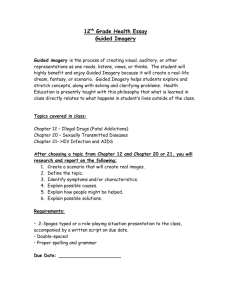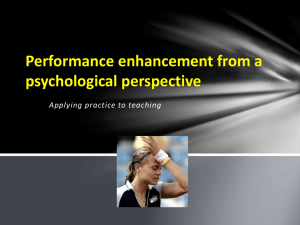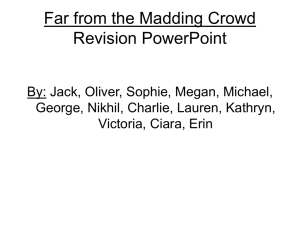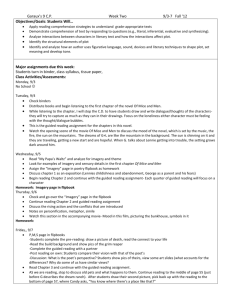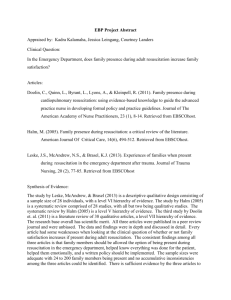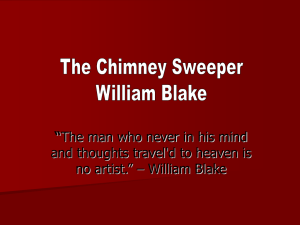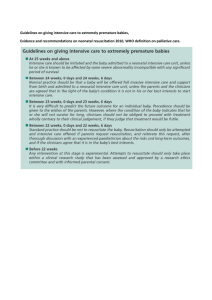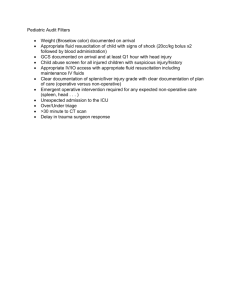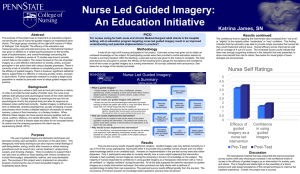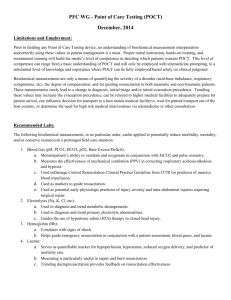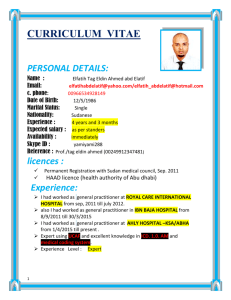How We Are Impacted by Human Factors
advertisement
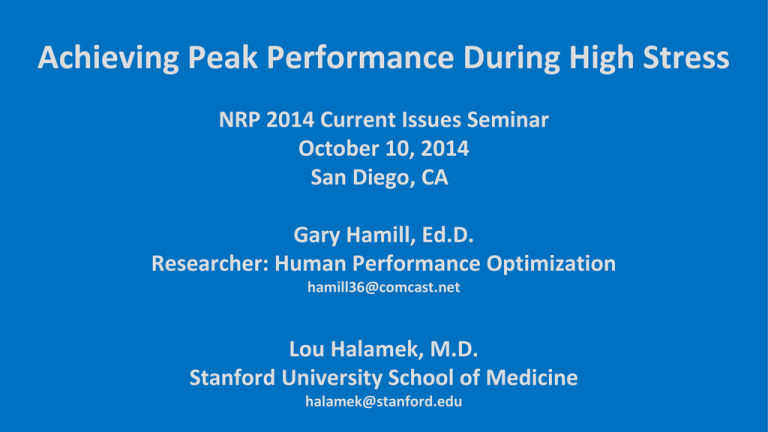
Achieving Peak Performance During High Stress NRP 2014 Current Issues Seminar October 10, 2014 San Diego, CA Gary Hamill, Ed.D. Researcher: Human Performance Optimization hamill36@comcast.net Lou Halamek, M.D. Stanford University School of Medicine halamek@stanford.edu Faculty Disclosure Information In the past 12 months, I have no relevant financial relationships with the manufacturer(s) of any commercial product(s) and/or provider(s) of commercial services discussed in this CME activity. I do not intend to discuss an unapproved/investigative use of a commercial product/device in my presentation. Presentation Goals: • Introduce the psychophysiological processes of stress and anxiety • Introduce strategies that can help you perform better under pressure What is Peak Performance? Peak Performance = The balance among challenge and skill characterized through adaptation and team synchronization What is Stress? Stress = The imbalance among challenges & skills with high consequences What is Anxiety? Anxiety = Debilitative cognitive and somatic arousal Freeze, Fight, or Flight Response • When we are alert and feel safe, modest levels of arousal chemicals like norepinephrine and acetylcholine help PFC cells to communicate efficiently, giving us the power to think, remember, and plan. • Under stress, very high levels of these same chemicals drive a vicious cycle inside the PFC cells, weakening synaptic connections and disrupting communications. http://directorsblog.nih.gov/2014/03/18/creative-minds-making-sense-of-stress-and-the-brain/ Because stress and anxiety are psychophysiological processes, they require psychophysiological solutions… Mental practice is one of the few, effective performance enhancing strategies Druckman, D., Swets, J.A., 1988. Enhancing human performance: issues, theories, and techniques. Washington, DC: National Academies Press. How is mental practice being used by other disciplines? Russell Wilson, Quarterback, Seattle Seahawks 2014 Super Bowl Champions on his use of Visualization How Can Mental Practice Help Resuscitations? • Prime and orchestrate your thoughts and actions to bring the brain online quicker to perform the resuscitation • Diagnosis / Pattern Recognition • Teamwork = Anticipatory Schemata • Dexterity • Improve learning - it performs direct operations on your memory. The procedure comes alive in your mind to learn new aspects of a resuscitation. Guided Imagery Demonstration - developing your mind’s eyes, ears, and dexterity The Mental Edge: Developing Your Training Program Guided Imagery - Begin by listing important resuscitation steps Video Assisted Guided Imagery - Incorporating a resuscitation video w/guided imagery
